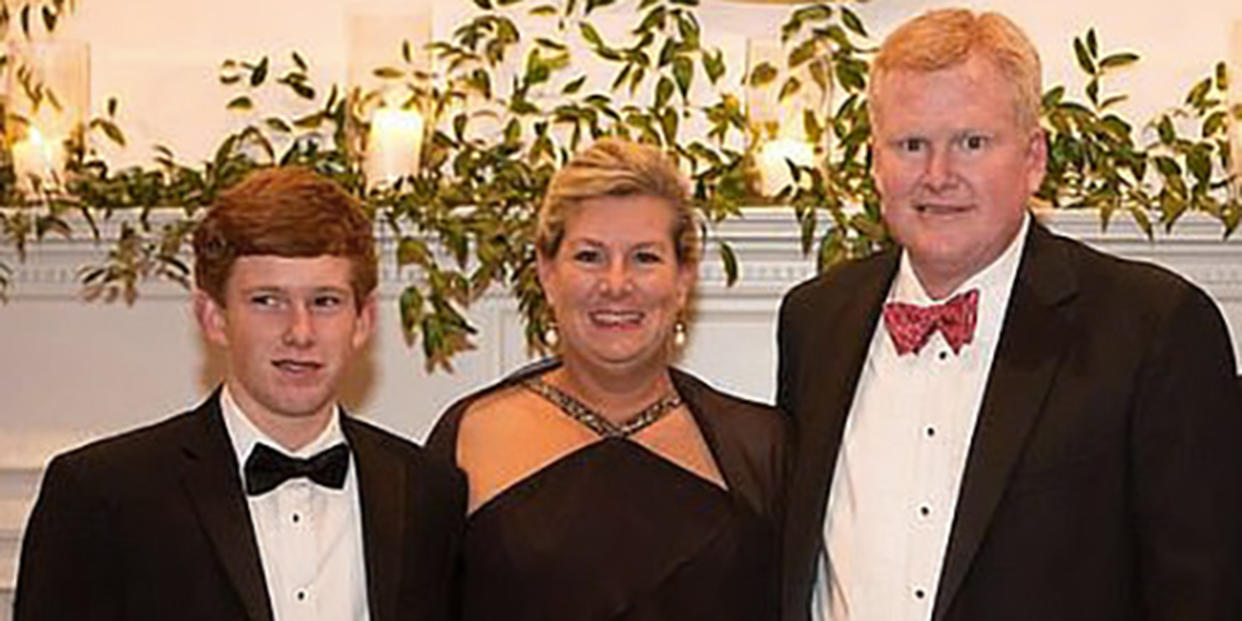Murdaugh murder trial jurors key share piece of evidence that ‘sealed the deal’
Three of the jurors who served on Alex Murdaugh's double murder trial said a video filmed at the scene of the slayings was the key piece of evidence in the trial that "sealed the deal" for convicting Murdaugh in the murders of his wife and youngest son.
Prosecutors introduced a Snapchat video Murdaugh's youngest son Paul Murdaugh filmed at the dog kennels on the Murdaugh family property, which contained audio of Alex Murdaugh yelling at one of the dogs minutes before the time of the murders.
Juror Amie Williams told TODAY on Monday the video was one of the critical pieces of evidence in the case.
"The witness testimony was very believable, and the kennel video definitely played a major part," Williams said, adding Murdaugh's testimony in his own defense was also crucial piece of evidence she took into consideration of the verdict.

The jury spent about three hours deliberating on March 2 after a six-week trial before convicting Alex Murdaugh in the murders of his wife Maggie Murdaugh and youngest son Paul Murdaugh.
Alex Murdaugh testified in his own defense on Feb. 23. Juror Gwen Generette said she couldn't believe that Murdaugh took the stand.
"When he got on the stand, I was like, 'OK, so it was him,'" Generette said. "I don't know him so I never knew his voice, but I realized it was him in the kennel video, and that just kind of sealed the deal."
Juror James McDowell, along with Williams and Generette, said they did not think Murdaugh should have testified in his own defense.
"If I was him, I don't think I would have, but I think that he believes that he's so convincing that he felt like that was his last resort," McDowell said.
Murdaugh testified he did not shoot Maggie or Paul Murdaugh, and became emotional multiple times throughout his testimony.
But the jurors said on TODAY they were not convinced by the show of emotion.
"No, I didn't think he was crying," Generette said. "He turned it on and off. It wasn't genuine."
"We already know that he's a lawyer," McDowell added. "He's able to be emotional with cases, he's able to be emotional with himself ... I think we were able to read right through that."
When asked if they knew what Murdaugh's motive was for the murders, all three jurors said they thought there were multiple factors, including Murdaugh's alleged financial crimes.
"He wanted to have control of everything — his wife owned the majority of the things that they owned — so I'm thinking it was more like greed and being in control," Generette said.

McDowell referred to the prosecution's argument that a "storm" of events that led to the murders of Maggie and Paul Murdaugh.
"It may not have been that one singular thing, but there's so many things there that contribute to that overall storm that I think (control) played a part," McDowell said.
Williams added she also thought it could have been a "combination of things."
"I don't know if we'll ever know," she said. "I think it may have been a combination of things, not just the financial, but everything was weighing heavy on him."
Murdaugh is still facing 99 other financial crimes charges stemming from allegedly stealing funds from his clients at his former law firm for over a decade.
Murdaugh was sentenced to life in prison on March 3 for the murders of Maggie and Paul Murdaugh, and his attorneys said they plan to appeal the sentence.
He was taken to Kirkland Correctional Institution in Columbia, South Carolina, where he will remain for about a month for evaluation before he's transferred to a maximum-security prison to serve out his sentence.
This article was originally published on TODAY.com
